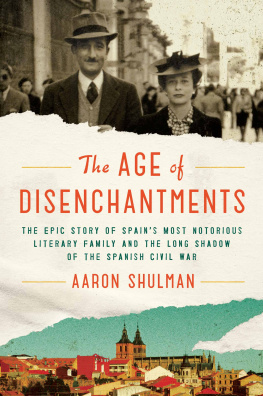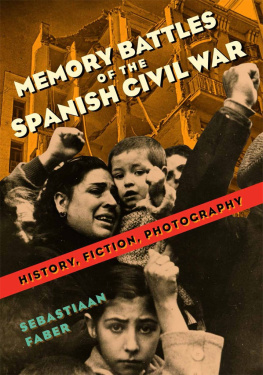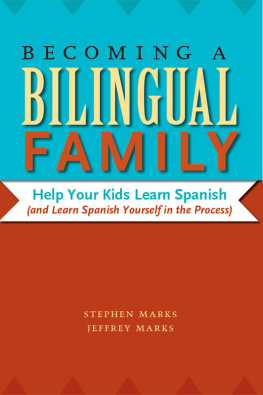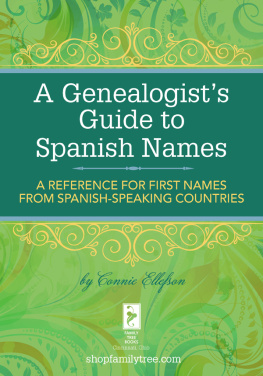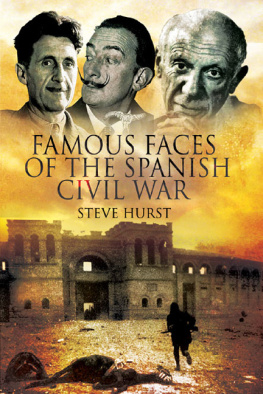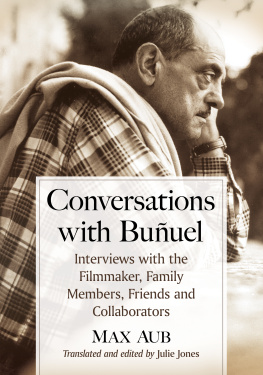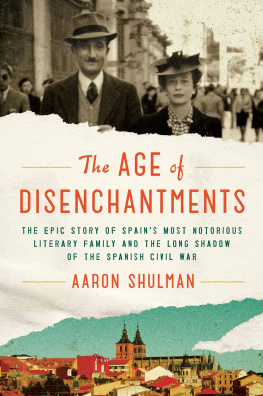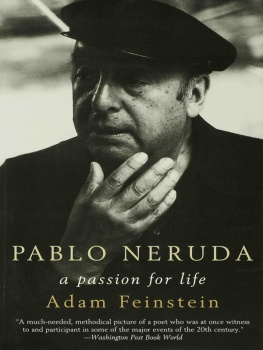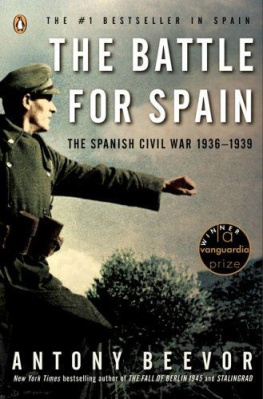B efore dawn on August 17, 1936, a man dressed in white pajamas and a blazer stepped out of a car onto the dirt road connecting the towns of Vznar and Alfacar in the foothills outside Granada, Spain. He had thick, arching eyebrows, a widows peak sharpened by a tar-black receding hairline, and a slight gut that looked good on his thirty-eight-year-old frame. It was a moonless night and he wasnt alone under the dark tent of the Andalusian sky. He was escorted by five soldiers, along with three other prisoners: two anarchist bullfighters and a white-haired schoolteacher with a wooden leg. The headlights from the two cars that had delivered them here illuminated the group as they made their way over an embankment onto a nearby field dotted with olive trees. The soldiers carried Astra 900 semiautomatic pistols and German Mauser rifles. By now the four captives knew that they were going to die. The man in the pajamas was the poet Federico Garca Lorca.
Exactly a month earlier, Francisco Franco and other Spanish generals had launched a coup dtat against Spains young, contentious democracy. A brave, ruthless career officer with an incongruously reedy voice and the grandiose custom of riding a white horse into battle, the forty-three-year-old Franco led forces in Spanish Morocco, where he commanded the colonial army of forty thousand Africanista soldiers, including the notoriously brutal Spanish Foreign Legion. Coordinated uprisings in military garrisons across the Spanish peninsula followed the next day, buoyed by the support of right-wing sympathizers, foot soldiers of fascist militia, and members of the Civil Guardor national police corpswho aligned themselves with the rebellion. The uprisings goal was to remove the Popular Front, a left-wing coalition that had won elections in February, and save their country from what they saw as the excesses of the Second Spanish Republic, the system of governance instituted in 1931 after the military dictator Miguel Primo de Rivera was ousted and his ally King Alfonso XIII left the country. In the five years since the Republics founding, leftist administrations had carried out a series of ambitious reforms aimed at transforming and modernizing Spain: legislation to increase rights for women, new agrarian laws to reduce the suffering of the landless poor, changes in the educational system to free it from the dominance of the Catholic Church, and restructuring of the armed forces to decrease the influence of the military. Such attacks on the traditional structures of Spanish society earned the reformists, as well as the Republic itself, a committed bloc of enemies, from loyal monarchists to conservative Catholics, from wealthy landowners to the Spanish fascist party, the Falange. Now these groups united under Franco and other generals. They hoped to take back Spain and return it to its former imperial greatness, which in many cases meant eliminating perceived foes, such as Lorca.
Born in 1898 to a well-off family in a village near Granada, Lorca had grown up to be a gifted musician, pathbreaking poet, theater-filling dramatist, and unparalleled party guest. His personality was so contagious that when a young Salvador Dal first met Lorca in college, the painter would literally run away from him to battle in private his jealousy of the Granadines charisma. By the time he was in his midthirties, Lorca was one of the most beloved Spanish-language writers alive. Alongside his literary peers, the Generation of 27, he reinvigorated Spanish poetry, bringing artistic innovations from the rest of Europe into harmony with Spains folkloric traditions, especially that of his native Andalusia with its rich gypsy influences. The Chilean poet Pablo Neruda wrote of his friend Lorca: I have never seen grace and genius, a winged heart and a crystalline waterfall, come together in anyone else as they did in him.
Behind that shimmering waterfall, however, Lorca inhabited a fragile, shadowy inner world. As a gay man in a steadfastly homophobic society, he was never able to express his true self in all its complexity, perhaps the worst fate imaginable for someone as torrentially expressive as Lorca. His pain fueled poems of melancholy longing and stage tragedies of disastrously failed love. Yet if the country that created Lorca failed to accept him during his life, this didnt stop him from cherishing Spain all the way down to its darkest impulses.
Everywhere else, death is an end. Death comes, and they draw the curtains, Lorca wrote in a famous lecture. Not in Spain. In Spain they open them. He traced the Spanish tradition of bullfighting to the same fatalistic attraction to death. Spain, Lorca wrote, is the only country where death is a national spectacle, the only one where death sounds long trumpet blasts at the coming of spring. Now in the hot summer of 1936, death had spilled out of the plaza de torosthe bullfighting arenainto the plazas of cities and villages, where the Nationalist uprising left bodies rotting in the streets.
After being airlifted by Nazi Junkers transports across the Strait of Gibraltar, Francos army beat an unrelenting march northward toward Madrid, with the aid of German and Italian tanks and planes. Taking orders from superiors and incited by the sinister broadcasts of Lieutenant General Queipo de Llano in Seville, the uprising machine-gunned innocents, raped and branded women, and carried out mass executions of peasants. The soldiers of the Foreign Legion, who called themselves the bridegrooms of death, collected the ears of enemies, just as Franco had once done as a young soldier in Africa. Their battle cry was: Viva la muerte!Long live death!
In Lorcas hometown of Granada, where he had fled to thinking he would be safer than in his adopted Madrid, long-simmering hatreds and rivalries boiled over. Falangist Escuadras NegrasBlack Squadsbegan conducting summary executions, revealing a bloodlust among neighbors that rapidly left ravines threaded with shallow graves. In Granadas municipal cemetery, where firing squads also operated, the caretaker was later rumored to have gone insane from all of the carnage he witnessed during the war. This violence merely mirrored what was occurring all throughout Spain as adherents to the coup battled for control with backers of the government, opening the curtains for death.
Spains fratricidal free-for-all was at heart a dispute over the identity of the nation in a still-young century that had already produced the First World War and the Bolshevik revolutionand over who would shape that identity. Would the country return to the lost dominion of the Catholic kings, a medieval feudalism in which landowners ruled over disenfranchised peasants and the church defined public and private life? Would it continue on the brash new boulevard of democracy built on Enlightenment ideals of reason and a belief in liberty and equality? Or would it get trampled and torn apart in the crossroads of history, with Stalins communism bearing down on one side and Hitlers Nazism on the other? For yearsarguably for centuriesthese tensions had been building in Spain, as if the past and the future had come together to form a crushing vise on the present. In the past 120 years alone, the country had seen three civil wars, two dictators, six different constitutions, and over fifty coups. Not only the rebels but even some politicians of the Popular Front saw a new eruption of violence as inevitable and necessary. The only solution, as the socialist leader Francisco Largo Caballero put it, was a bloodbath.
In Granada, it quickly became clear that Lorcas safety was far from guaranteed. On July 20, less than a week after his arrival, his brother-in-law, the recently elected mayor of the city, was arrested. His term in office had lasted a mere ten days. Soon after, a group of Falange thugs showed up at the Lorca family home and knocked the poet down the stairs. Then they tied the Lorcas groundskeeper to a tree and beat him. Lorca was terrified. As the leader of a government-sponsored theater troupe that performed in the dusty, forgotten pueblos of Spain, he was a vocal supporter of the Republic. Add to this the envy his success inspired, never mind his fondness for insulting the conservative bourgeoisie of Granada, and it seemed certain that sooner or later the soldiers would return for, as some of his detractors called Lorca, the fag with the bow tie.

